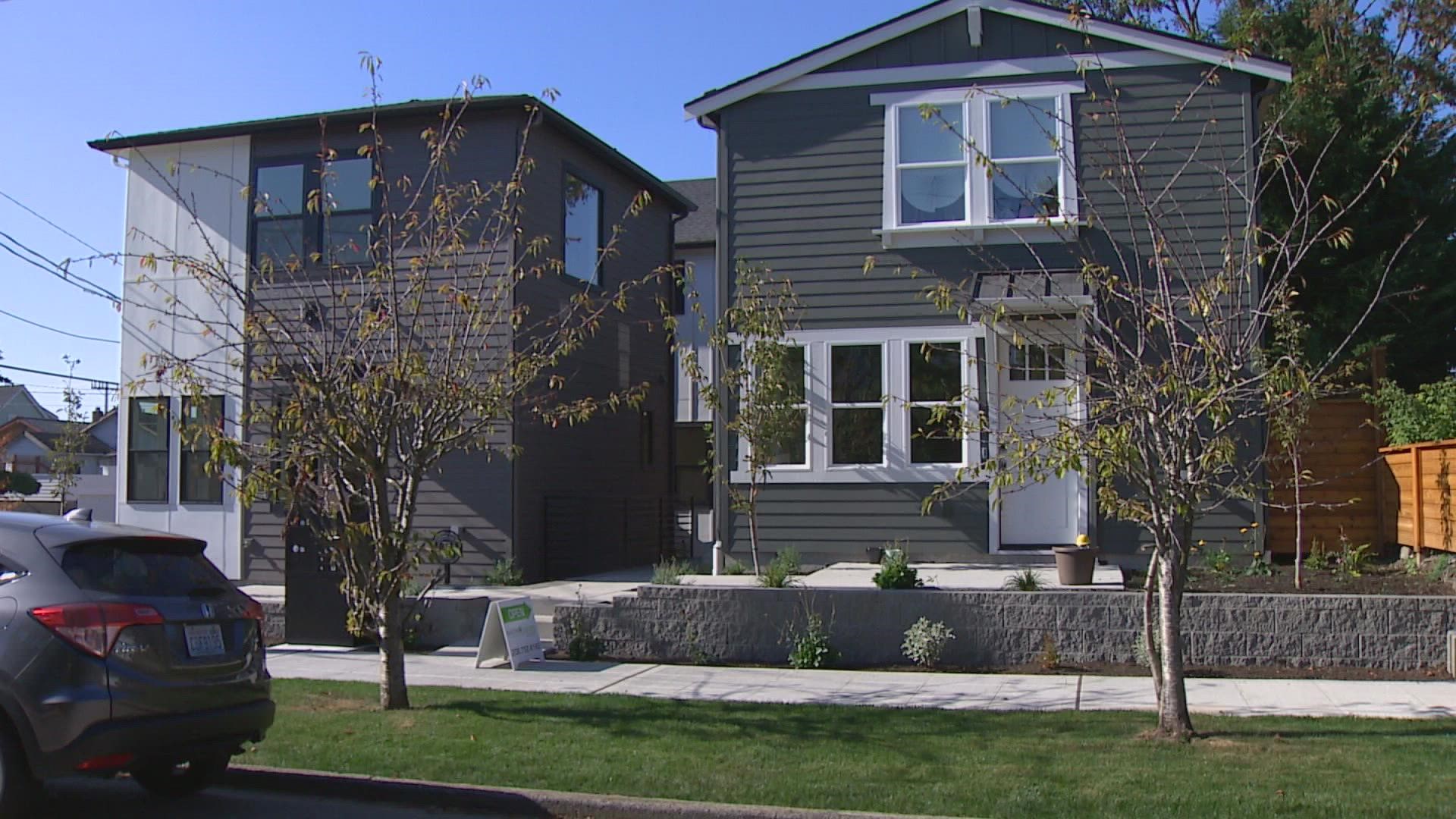SEATTLE — Pocket neighborhoods are popping up more and more across Seattle, and they are getting mixed reactions from neighbors and nearby residents.
Finding the perfect place to live is no easy feat, especially when you've honed into one neighborhood.
“It’s a community where people live and plan on staying,” said Melissa Jonas, who has resided in Beacon Hill for almost 25 years.
Her daughter, Sylvia, was born and raised in Beacon Hill. When Jonas and her husband separated, she faced a harsh reality.
"There’s no way I could have afforded to rent in Beacon Hill when we separated,” explained Jonas. “It wouldn’t have worked.”
A month ago, they moved into their newly bought cottage in what is called a pocket neighborhood or pocket community.
"We tore down one single-family home, and we built five cottages," said Jim Riela, president of Thomas James Homes in Seattle, which builds these communities.
Pocket neighborhoods are smaller clusters of cottage-style homes built around a common area.
“It’s a super successful project for us," said Riela. "We have sold 35 cottages in the last 90 days."
The homes are 840 square feet and include 2.5 baths, along with two bedrooms. They're listed at a little over $600,000.
“It’s not affordable housing, but it’s accessible at a different price point than the house down the street that might be sold as a tear-down for twice what this costs,” said Jonas.
There are also Homeowners Association fees.
“Those [fees] do cover your water, sewer, garbage, master insurance plan,” said realtor Megan Halter.
The reason these communities are popping up now is because of a Seattle Ordinance change in 2019 regarding land use and zoning. It’s also why accessory dwelling units are now allowed.
“In general, the new construction codes offer more green living,” said Halter.
Some neighbors who didn’t want to be interviewed on camera feel like this housing is invasive but understand Seattle is growing, and this is a way to provide more housing.
“This is multi-family on a single-family lot, and I think it’s working, and I think we need more of it,” said Jonas.

